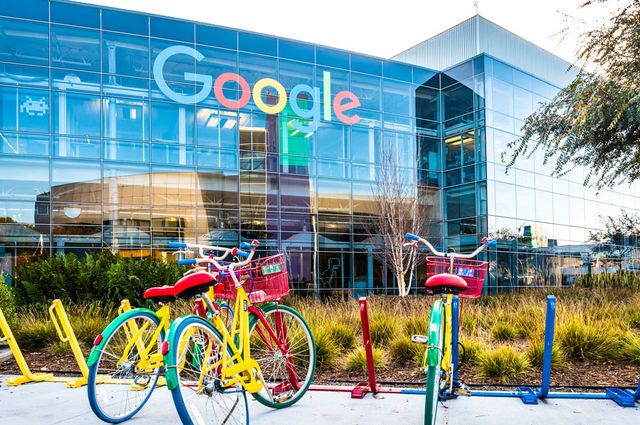Google is phasing out third-party cookies... Will it impact hotel marketing?
10 experts shared their view
Google recently announced that they are going forward with their plan to block third-party cookie tracking through Google Chrome (Chrome commands 63% of browser market share). What this means exactly for hotels is not totally clear. Mostly what will be affecting is tracking the source of revenue on a hotel's website (also called attribution) and the possibility to re-target visitors to your website (unless you use Google's retargeting ad products). To avoid users getting hit with totally irrelevant ads, like billboards on the highway, Google is creating a new system to target users which involves less tracking. Called FLoC the system essentially groups people into categories based on their behavior and puts a label on top so they can get served ads based on those labels without having any personal information connected. However, it only works if you advertise with Google, which means they are building a taller wall around their garden - an odd choice as they enter a long anti-trust investigation process. But what does this mean for hotel marketing? How will hotels track revenue? Since most non-major brand hotels have two domains (website + booking engine) how will this affect tracking?
The death of the third-party cookie has been coming for quite sometime now, due to its lack of transferability across devices and websites, and mounting privacy concerns. So Google's move to block third-party cookies is nothing new. Apple's Safari and Firefox did this back in 2013. Google did not stop supporting third-party cookies purely out of user privacy concerns. The search engine giant simply no longer needs third-party cookies since it already has the largest first-party database in the world and, together with Facebook, already controls more than 50% of advertising spend worldwide.
How is the advertising industry reacting to the upcoming third-party cookie demise? The industry is working overtime to come up with Universal Digital IDs that are transferable across websites and devices and anonymize PII (Personal Identifiable Information). In addition to Google's FLoC program, other projects include: IDS Unified ID, The Trade Desk Unified ID, Live Intent ID Graph, Live Ramp ID Graph, InfoSum ID Infrastructure, and even travel ad network Adara's Privacy Token.
What does the elimination of third-party cookies mean for hotel marketers? The effect will be immediate and will disallow many hotel marketers from measuring the success and ROIs of their digital marketing campaigns. Example, next time when you have a banner advertising on the local CVB website or on the travel section of the New York Times Digital, you wouldn't know whether people booked your hotel after they saw your banner.
Will the elimination of the third-party cookies affect the major hotel chains like Marriott with its Everest-sized first party data derived from its 150 million loyalty membership? Or the OTAs with their hundreds of millions of users? Hardly. So who will be the biggest losers from the elimination of the third-party cookies? The answer is simple: Hotel companies that do not have a Customer Data Platform (CDP) or at least a CRM technology with centralized guest data.
This latest move by Google underscores the importance of the first-party data, including first-party cookies. First-party data is the customer data (past guests, website users, opt-in email subscribers, lists of corporate travel managers, meeting planners, wedding and event planners, SMERF group leaders the property has been doing business with or at least in communications with, etc.) that comes from the PMS, CRS, WBE, CRM program, from the property's website, opt-in email sign-ups, even customer lists sitting on laptops of sales and marketing personnel.
Does your property have a Customer Data Platform (CDP) containing all of the property or hotel company's first-party data that is being cleansed, de-duped, enriched and appended? Do you have a CRM program and technology (Ex. Cendyn CRM, Revinate CRM, etc.) that can not only create 360-degree guest profiles, but more importantly categorize past guests based on their RFM value (Recency, Frequency, Monetary), augment guest profiles with preferences, social media ambassadorship, customer engagement data, etc. and conduct marketing automation and drip marketing campaigns in the pre-, during- and post-stay?
How do you increase the size of your first-party data? In addition to implementing CDP and CRM technologies, Content Marketing is the best way to increase your first party data.
Review and optimize your property's Content Marketing initiatives, whose role has been highly elevated by the current crisis and curtailed marketing budgets. These initiatives include: unique, relevant and enticing website content, brand positioning announcements (ex. Green Hotel Certification), SEO, website content, social media posts, B2B marketing initiatives via LinkedIn aiming to engage corporate travel and group planners, PR, blog articles and posts, white papers, webinars, case studies, influencer marketing, expert knowledge marketing, award announcements, new services and amenities announcements, etc.
Create gated content for your expert knowledge marketing initiatives, including valuable spa and wellness-related advice, chef recipes, cocktail recipes, wedding and social event how-to guides, etc.
Another consideration for hotel midsize and smaller hotel brands is joining Journera, the brainchild of Orbitz founding CEO Jeff Katz. Journera already works with Marriott, Hilton, IHG, Hyatt, etc. All first-party data that comes from users of the platform is anonymized and any personal identifiers are locked. With the removal of the third-party cookies, platforms like Journera's provide hotel marketers with an important alternative.


